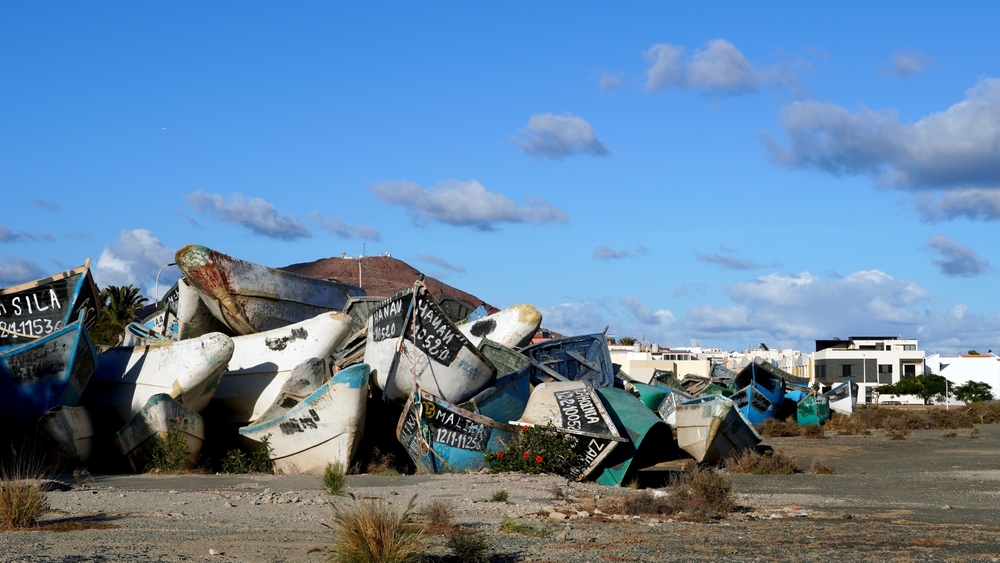A humanitarian crisis is unfolding on the Spanish Canary Islands, and political leaders in Madrid have ignored repeated calls for help in tackling mass illegal immigration, the president of the archipelago has claimed.
In a scathing interview with El Mundo, Fernando Clavijo accused Spain’s major political parties — the left-wing Socialists (PSOE) and center-right People’s Party (PP) — of leaving his territory in a “state of abandonment” and urged them to form a “great migratory coalition” to address the ongoing migration crisis affecting the islands.
Clavijo denounced both Prime Minister Pedro Sánchez and opposition leader Alberto Núñez Feijóo for what he described as a lack of support and political will, leaving the archipelago in a “state of abandonment.”
“The Canary Islands have always been there for others. But now, for the first time in democracy, we face a national emergency, and Spain has turned its back,” he told the Spanish newspaper. “We have a feeling of abandonment and loneliness. It hurts, especially because every time there has been an emergency in another territory, the Canary Islands have shown solidarity, assuming our share and our responsibilities.”
As the Canary Islands face a renewed surge of migrant arrivals, Clavijo emphasized the severity of the situation, calling it Europe’s deadliest migratory route.
NGOs estimate over 10,000 migrant deaths in 2024 alone while Remix News reported earlier this month that a record 46,843 migrants came to the islands last year, beating the previous record of 39,910 set in 2023, according to figures published by the Spanish Interior Ministry.
Clavijo criticized Spain’s failure to secure adequate European Union assistance, including the deployment of Frontex resources, the European Union’s border agency.
“Spain has not formally requested European support. The Commission told us directly that there has been no formal request for the deployment of the European Asylum Agency or Frontex. This inaction is shocking.”
Clavijo slammed both the PSOE and PP for exploiting the crisis as an electoral tool rather than addressing the root causes. He accused Sánchez of neglecting the Canary Islands, while claiming Feijóo and the national PP have “left the islands behind” and undermined their regional coalition with the Canary Coalition (CC).
“The PP and PSOE are using this as an electoral weapon. I will continue fighting because lives are at stake, and this cannot be about politics,” he added.
It isn’t just about the lives being lost at sea, however. Tens of thousands of undocumented adult male migrants are landing on the islands — a popular route to Europe due to their proximity to the African mainland and the hospitality offered by the Spanish government compared to, for example, that of Giorgia Meloni’s administration in Italy.
The Canary Islands are currently hosting over 5,800 unaccompanied minors, a burden Clavijo argued has not been shared equitably with other regions of Spain. He welcomed tentative support from parties like Junts for an equitable distribution of these minors but criticized the slow progress in finalizing agreements.
Social conservatives like the rising right-wing VOX party, however, while sympathetic to and supportive of the Canary Islands’ plight, are firmly against relocating scores of illegal immigrants to the Spanish mainland and have called for mass deportations.
Clavijo advocated for longer-term solutions, including revising Spain’s immigration laws and fostering development and cooperation with Africa, whose population is expected to double in the next 30 years. He rejected detention centers in third countries as inhumane and counterproductive, calling instead for comprehensive policies that address migration at its roots.
“We need rational management that respects human rights,” Clavijo stressed, emphasizing that Europe’s focus on fortifying the Mediterranean has only shifted pressure southward, intensifying the crisis in the Canary Islands.
Despite Clavijo’s claims, there is ample evidence of the Spanish government taking migrants en masse from the islands and housing them in hotels and reception centers on mainland Spain, as evidenced by the journalist work of migration expert Rubén Pulido and others.
NEW: 🇪🇸 500 illegal migrants land in Madrid after being flown to the mainland from the Canary Islands.
Journalist @rubnpulido tells us: “All thanks to the Spanish govt. Most of them will continue on through Europe and Brussels remains silent about this.”pic.twitter.com/VG7cSN0yL5
— Remix News & Views (@RMXnews) June 21, 2024Pulido has consistently warned that adopting a policy of relocating illegal immigrants to mainland Europe “will once again severely punish the Canary Islands and turn the whole of Spain into a paradise for traffickers.”
However, traffickers aren’t the only concern. As reported by La Gaceta earlier this month, citing Frontex sources consulted by the news outlet, Spain is facing a “high degree of jihadist threat” due to the origin of the majority of its newcomers.
“In 2024 alone, almost 15,000 illegal immigrants have arrived in the Canary Islands from Mali, where the struggle between jihadist cells is constant,” warned a spokesperson for the European Union border agency. They further noted that illegal immigration from the region is being used as a “major financing engine for Islamic fundamentalist networks.”






